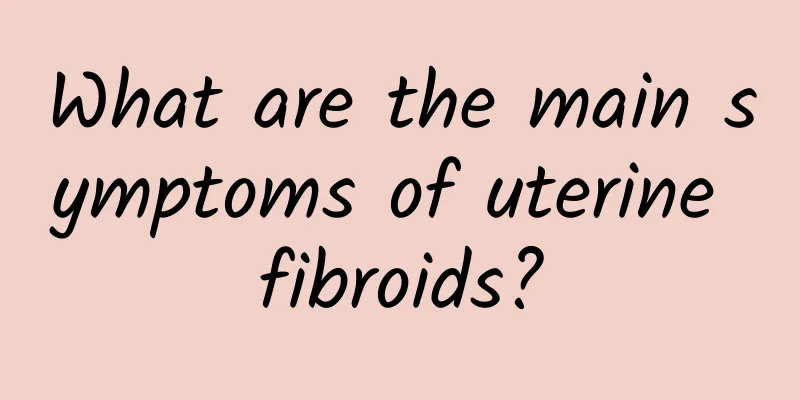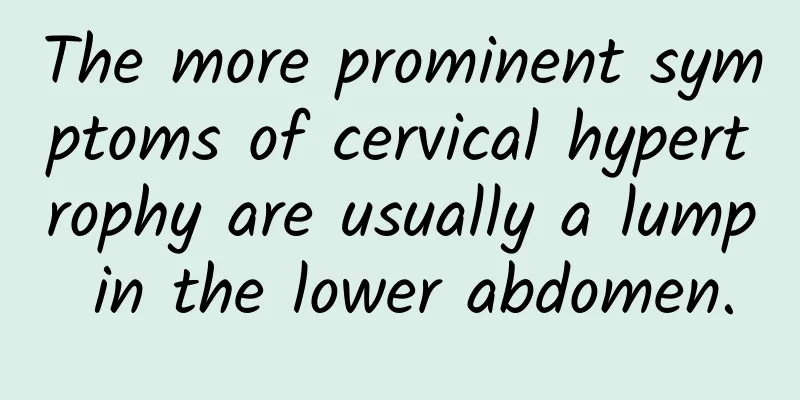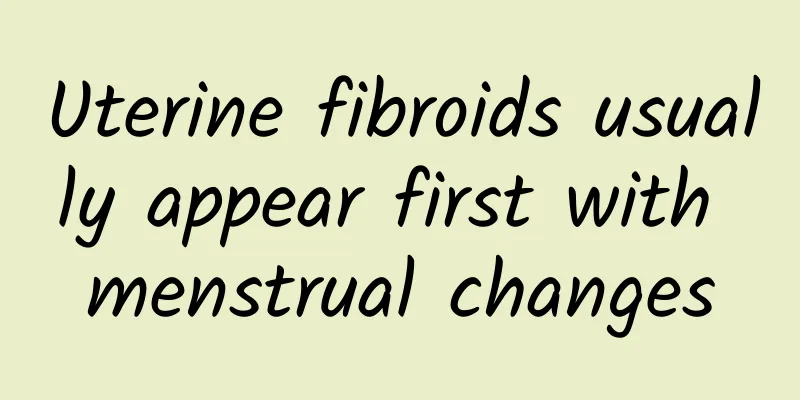What are the main symptoms of uterine fibroids?

|
Early detection of symptoms of uterine fibroids is of great help to timely treatment of patients, so women must correctly understand the symptoms of uterine fibroids. So, what are the specific symptoms of uterine fibroids? Let the experts introduce the symptoms of uterine fibroids in detail. The symptoms of uterine fibroids mainly include the following aspects: 1. Pain: Generally, there is no pain symptom. However, when the fibroids undergo red degeneration, or the pedunculated fibroids undergo torsion, or the submucosal fibroids stimulate the uterus to undergo spasmodic contraction, it may cause acute abdominal pain. 2. Anemia: If uterine fibroids cause long-term heavy menstrual flow, it can lead to secondary anemia. In severe cases, it will manifest as symptoms such as general fatigue, pale complexion, shortness of breath and palpitations. 3. Menstrual changes: Menstrual changes are the most common symptoms of uterine fibroids, which are manifested by increased menstrual flow, shortened or prolonged menstrual period, etc., and irregular bleeding may also occur. Submucosal fibroids may cause bleeding due to increased mucosal area and surface necrosis and infection. When intramural fibroids are larger, the uterine cavity becomes larger, the endometrial area increases, the uterus contracts poorly, or when combined with excessive endometrial hyperplasia, the symptoms are shortened menstrual cycle, increased menstrual flow, prolonged menstrual period, etc. 4. Increased vaginal secretions are common in larger intramural fibroids. As the uterine cavity enlarges, glandular secretions increase, resulting in increased leucorrhea. When submucosal fibroids are accompanied by infection, the amount of leucorrhea is also high and sometimes bloody. 5. Compression symptoms: As fibroids grow, they can compress nearby organs and cause various symptoms. For example, uterine wall fibroids or cervical fibroids can compress the bladder, causing frequent urination, urination disorders, and urine retention. Compression of the ureter can lead to hydronephrosis. Uterine posterior wall fibroids can squeeze the rectum and cause difficulty in defecation. 6. Infertility: 25-35% of patients with uterine fibroids may suffer from infertility because the fibroids hinder the fertilized egg from implanting or the fibroids prevent the sperm from entering the fallopian tube. The above are the symptoms of uterine fibroids. Through the expert’s introduction, I believe you have a certain understanding of the symptoms of uterine fibroids. If you still have any questions about the symptoms of uterine fibroids, please consult our online experts. For more information, please visit the uterine fibroid disease special topic at http://www..com.cn/fuke/zgjl/ or consult an expert for free. The expert will then give a detailed answer based on the patient's specific situation. |
<<: What are the symptoms of multiple uterine fibroids?
>>: Common symptoms of menstrual irregularities in women
Recommend
Early treatment of cervical precancerous lesions
Generally speaking, the earlier cancer is discove...
What causes pelvic inflammatory disease
Pelvic inflammatory disease is a common gynecolog...
Where is the best hospital for cervical erosion?
Where is the better hospital for cervical erosion...
Don’t want to ruin your mountain climbing mood? Make these preparations before going abroad or traveling to reduce the incidence of altitude sickness
With the development of information and the impro...
Psychological nursing care for patients with recurrent miscarriage
Recurrent miscarriage is a major physical and men...
What causes dysmenorrhea? How can I relieve the symptoms of dysmenorrhea?
Dysmenorrhea can make many women feel very painfu...
Professional advice on how to prevent menopause
As my country's social economy develops, mate...
How to take care of endometrial tuberculosis
How should we care for endometrial tuberculosis i...
How can women prevent cervical erosion from becoming cancerous? Five aspects must be followed to prevent cervical erosion
Cervical erosion is a very common gynecological d...
What is aggravated dysmenorrhea?
If women have worsening dysmenorrhea, especially ...
What are the common causes of adnexitis?
Adnexitis has always been a problem for women. Wo...
Which women are prone to ectopic pregnancy
In modern society, ectopic pregnancy is no longer...
What are the symptoms of early uterine fibroids? Can uterine fibroids cause vaginal bleeding?
The incidence of cervical fibroids is very high, ...
I didn't eat much after the abortion but I gained weight
Even if you don't eat much after an abortion,...
Experts explain the common symptoms of cervicitis
The cervix is an important part of the female r...









